16 Sohour Foods to Curb Hunger and Thirst
June 17, 2015 | Nadine El Sayed 50Ramadan is a festive month, sure, and we all enjoy seeing relatives, old friends and colleagues over scrumptious meals. But all too often we’re left either too hungry because we couldn’t jam sohour in the mere eight hours we are allowed to eat or suffocated because we did cram that pizza down at 3:00 am so we’re not left like walking zombies the next day. The weird thing is, that pizza often leaves us starving anyway.
You need to get smart about your sohour choices, there are various foods that will last you for a good few hours after consumption because they are digested much slower than, say, a chocolate or a pizza. There are also foods that will make you thirsty the next day while others will actually curb your thirst and hunger pangs. Foods with low Glycemic Index (GI) will keep your blood sugar and insulin levels at bay, which isn’t only healthy, but it also keeps you feeling satisfied for a while.
Here’s a round up of 16 foods you should have over sohour and seven that you should avoid like the plague.
Devour
Proteins like turkey: Proteins, especially lean meat, are great to keep your hunger at bay. Opt for a turkey sandwich with brown bread to keep you going through the fast.
Oatmeal: Foods that are high on fiber keep you feeling full for a while after consumption because they take a while to be digested. Oatmeal is also high on complex carbs, which is the good sort of carbs if you’re wondering.
Apples: Apples are also high on fiber, but they are also high on water.
Avocados: these are packed with nutrients and are also loaded with healthy fats and fat soluble vitamins that leave you feeling full.
Banans: Filled with potassium and help reduce thirst.
Foul (fava beans): Your mother was right, foul will actually last you through the next day because it has a low GI and is slowly digested. This means that it will keep releasing energy for a while after consumption and will keep you from getting
hungry or weak.
Fruits and vegetables: Not only are those high on fibers, they’re also what your body needs to keep going the next day. Their water content means they will keep releasing water into your body as they’re being digested.
Brown rice and pasta: These are both packed with fibers because the grains are unbleached and so their nutrients are kept in tact.
Lentils: These are high in fibers and proteins, grab a cup of lentil soup (ads) for sohour but be careful as some cannot digest lentils well.
Beans: Beans, like foul and red beans, are packed with fibers and proteins. Opt for a bean salad at night followed by a mint tea drink to help ease the gas if your stomach cannot tolerate beans well.
Hummus and chickpeas: These are also high on fibers and proteins and make great salads and sandwiches.
Dates and figs: These give the body the energy kick it needs without leaving you to feel too full to breathe or sleep.
Eggs: High on protein and low on calories.
Nuts: Nuts like almonds and walnuts are great sources of protein and nutrients, but they’re also high on calories, so keep your consumption to a handful each day.
Yoghurt: Yoghurt is great to keep your thirst at bay the next morning. Add fruits to yoghurt as they are filled with water and help you retain it over the next day.
Cucumbers: These are known to be almost all water and so are great with thirst; chop on your yoghurt or dip it in humus for some variety.
Avoid
Sugar-loaded foods: Not only are those high in calories, foods with high sugar content are digested fast and increase your blood sugar levels, which leave you feeling hungry.
Caffeine: Sure, the first thing you want to reach to after iftar is that cup of coffee or tea, but caffeine is a diuretic which means it stimulates the process of excreting water and so it will leave you feeling thirsty.
Pastries: A croissant for sohour won’t do because it has about zero fibers and is bound to cause sudden insulin increases, leaving you hungry right after consumption.
Kiddy-Corner Cereals: While some cereals are loaded with fiber (like Muesli or Fitness from Nestle), many others are high on simple carbs and sugar (the likes of Cheerios). Avoid the
kiddy-corner cereals and opt for whole grain brands instead.
Salty foods: These, needless to say, we hope, leave you feeling thirsty the next day. So avoid things like sardines or adding loads of salt to your iftar or sohour meals.
Deep fried foods: Avoid sambousek or french fries for sohour as deep frying leaves you bloated and feeling heavy. Bake your potatoes, if you must, instead.
Spicy foods: Spicy food will leave you feeling thirsty, so don’t add chili to your foul over sohour.
-
Don’t know – I understand that in Islam ‘the more the hunger the more the reward’.
So we aren’t supposed to keep feeling full all day, in order to experience what those without food feel.
That’s the Islamic spirit of fasting. -
Thank you for this. It will be very helpful.
-
Maasha Allaah!Beneficial. Jazaakallaahu khayra.
-
Salaam Aleikum,
Fantastic advice. As a mother to two small children I need to keep my energy level up during the day.
Misbahu Katsina, it is indeed a time to be pious, humble, avoid gluttony and express heightened self awareness… All for the cause of Allah and to be thankful for what we have been given. Spirit of fasting is not about starvation. There is no point in Fasting if you cannot preform your regular duties, or be able to pray. This advice is not going to keep you feeling “full” for 18 hours, but it will provide energy. Us with children and a big family needs any bit to keep going!Please remember yourselves during Ramadan. It’s about giving, loving, sharing, cherishing and being thankful.
-
I agree with misbahu. If anyone can clarify the rightness or wrongness of this it would really help the guilty feelings
-
Great article. The purpose of fasting is to attain piety and become God conscious. So whether you feel the hunger or not shouldn’t be relevant. It’s a misconception in the Muslim world that the purpose of fasting to ‘feel hunger’.. Allah is merciful and he gives provision so that we may appreciate His blessings. Well done, article is spot on
-
I agree with Misbah regarding the spirit of fasting
nevertheless the tips are good -
Its good to know which foods to avoid just so you don’t get that irritating hunger urge!
-
Misbahu- it’s about being HEALTHY! And taking care of our bodies even during Ramadan….and for some if these tips help with keeping them content on long Ramadan days than alhamdullilah bc some people especially mothers of young ones need it
-
Misbahu – it is IMPOSSIBLE to fast that long without feeling hungry so don’t worry!
As for feeling full longer, and having longer energy release, there is absolutely nothing wrong with that. You are making smart choices from what Allah has made halal for you in order to make fasting easier. Jut as you wouldn’t CHOOSE to go running in the middle of the day when fasting or wear a sweater outside in 100 degree weather. It makes no sense to eat unhealthy foods just to make it harder to fast and then hope or expect more reward.
Allah doesn’t WANT fasting to be HARDER on us than it has to be in our unique situations HE has provided. It’s just that He knows fasting is difficult so in His Mercy He has told us that the greater the hunger, the greater the reward. So when we feel the pang we can say “alhumdulillah” instead of “ugh!” Not so that we can artificially try to stimulate MORE hunger. Nothing wrong with taking care of your body within Allah’s parameters.
Why else would we have suhoor? Why not skip it to provide more hunger?
Want more reward? Just pray more. Give more. Feed more hungry people while you are fasting!
-
Islam is not like Budhism dear Misbahu. The teachings are centered and are in sync with the human nature and functionality. That’s one reason sohour is prescribed and eventually iftaar. The spirit is to empathize with the unfortunate and not necessarily starve ourselves in essence. Also, while all the recommended foods are filling, they may only keep hunger at bay for few hours, not the whole 15 hours.
-
Misbahu, you do have a point. The more the hunger, the more the reward. Also, the main point of Ramadan is to be able to feel the way those without food feel like you mentioned right?
But at the same time, since we’re going to be fasting longer hours (summer time), it may seem difficult to some of us. So, with options and information like above; fasting may be relatively easier; therefore possibly encourage more people.
I mean, even if we dont have enough strength to do exactly how you’re saying; it’s still good that we’re trying, dont you think? At the end of the day, it’s better than not fasting at all right? Hopefully you’ll do it better though 🙂
-
Thank you for posting…it was extremely informative. Ramadan Mubrak..Ma Salaams
-
Salaam! We’ll all feel hunger sooner or later while fasting, which of course is meant to be and rewarded if Allah wishes. Still it makes sense to eat healthy (and not too much of course) once we break the fast. Helpful article – may Allah reward you!
-
Misbahu,
The prophet (SAWS) used to eat suhoor himself. The blessing you get from fasting isn’t measured by gow hungry you are, but by your patience, your actions, etc. Hunger is not required during fasting, but it does teach us to be greatful for what we have. -
Jazakallah
-
Jazaak Allah! Thanks a lot ! Allah dint say tht if we look for ways to lower down our hunger n thirst, he will reward us less. Thr tips given above are planned within the boundaries of Islam.
-
I think it’s more about gaining adequate nutrients to keep you strong, healthy, and productive, not necessarily full. You feel full simply because your brain is satisfied and does not crave.
-
salam
just for the record, it is NOT “the more the hunger the more the reward” , & no matter what u eat u wont feel full all day, eat simple & healthy food.
btw thx for the post.
allah bless us & the mostazafin. -
There is no such thing as the more hungry, the more reward in fasting in Islam. Islam preaches moderation in ALL things, so do not overeat and do not starve yourself. The purpose of Ramadan is to inculcate taqwah which makes you shun eating during the day even though you might have your fridge and kitchen piled up with food, abstain from vain talk, backbiting, evil deeds, etc. Fasting is prescribed for you……so you may have Taqwah.
-
It doesn’t mean LITERALLY starve to the point where we damage our health, we have shoor for a reason.
-
Alhamdulillah hunger to feel what poor and needy feels
but not to spoil your health, it’s always good to eat best and
Little for good health. Let’s all be positive and spread love
and peace as taught by our religion. Aameen -
Misbahu katsina. Im sure the author has good intentions and has wrote thus to help with fasting for those who find long fasting hours hard and then dnt keep them. The author has provided a way of ease. Still makes a 22 hour roza hard. But eases it a little for those like me who struggle.and nowhr does it say in an ahadith or the Quran that we have to starve. We have to refrain from worldly things. prove to ourselfs these things are not necessary.
-
Thank you for these tips on which foods to eat. When Ramadan is in the summer, whether in the UK where Muslims will be fasting for about 19 hours and have little time for suhoor, or in the Middle East where midday temperatures soar to 45C/115F degrees or more, we need all the help we can get to make it through the fast. Every morsel must be as nutritionally packed as possible. Yes, we should not stuff ourselves or feast during the month of fasting. But without utilizing at least some of these tips, there are probably many people who just wouldn’t be able to make it fasting under these intense conditions. May Allah subhana wa ta’ala accept our fasts and all our ‘ibadat during this holy month.
-
The more hunger the more reward? This has nothing to do with Islam. If you have a sandwich for sohour instead of fried chicken, they’re both meals just one will keep you on your feet later. Sohour is sunna. The choices you make about what you eat during is up to you. For iftar, yes maybe not devour the entire table so that you can appreciate the value of what’s in front of you and feel with the poor and less fortunate.
-
It doesn’t matter what you eat, you’re still going to be hungry and thirsty. Choosing food that’s nutritious and going to get you off to a good start isn’t cheating. I’ll be running after 15 children at work all day, then coming home to my own three. It won’t prevent me being tired, thirsty and hungry but I need to maintain my energy levels as long as possible and do it for a month. Some Muslims work 10 hr days in the fields while fasting, you can’t do that without the right fuel! Great article, jazakallah
-
Thank you for this information. At the age of 62 I am recently converted and have never fasted in my life. I am grateful for any help I can get as I tend to be hypoglycaemic. I pray Allah will help us all to fast this month.
-
Response to Misbahu:
I don’t think that is what the article is dealing with.
If you look at the types of foods that have been recommended for us to eat, these are the foods that would have existed for generations before us anyway. If it was good enough for them, it’s good enough for us.
Compare it to the fried and salty and sugary foods that make up the junk food available to us today and which is more likely to cause harm to our health, especially during the fasting month. Its clear that we do need to watch what we are eating.
-
Misbahu, even if you filled your tummy to the brim you would still feel hunger, but remember there are millions of muslims who are working and having sahoor is a sunnah 🙂
-
@ Misbahhu Katsina
This is intended to be good nutritional advice. You owe it to your body as it has a right over you (That’s also an Islamic advice)
We eat enough junk food to clog up our system so it’s refreshing to know the good from the bad when it comes to food types.No matter how much you eat, you will feel hungry & thirsty towards the end so don’t worry about the reward for feeling the hunger 🙂
Was-salaam
-
Good tips!! Jzk for sharing. The tips shared about are realky good. Iys about giving you the energy all day and making u feel less hungry. These foods make u feel “full” by eating a small portion of it. Its true, we need to eat less and still be productive in our Ibadah and our daily rputine iA. That is why Suhour is a must.
-
Thanks for this. I have eaten some of these (good and bad) in the past and the good foods are actually very helpful.
To Misbahu, I agree with your sentiment. But personally I find that these foods do not necessarily keep me full throughout that day, hardly at all to be honest because where I live I must fast 18 hours, so I definitely feel the hunger during most of the day. However my biggest obstacle is dealing with the thirst and a lot of the good foods mentioned do help to keep it at bay. As a result I focus better throughout the day and I have energy to do what I set out to do. I still feel the thirst of course but at least I do not have as many aching headaches as a result.
-
Allaahu akbar
-
@Misbahi Katsina: Ramadan isn’t about “the more hunger, the more reward”. It’s about empathizing with the those who are less fortunate than you, and self control/ controlling your impulses. Ramadan is also a chance for people to renew and strengthen their faith and relationship with God.
-
@misbahu- ….but that doesn’t mean our body doesn’t have a haq over us,we ARE required to eat and be sensible,where are our ibadahs when we’re down with a bad tummy?!
-
Excellent tips.
In the UK we are fasting for 18 hours so we need all the help we can get on getting us through the day while working and going about our day to day activities.
Very useful tips on healthy eating.
Thank you. -
@ MISBAHU KATSINA…the statement u said is not correct…because the prophet(peace be upon him)said:(( Eat sahour because there is Barakah(blessing)in sahour)) and in another naration,he said;((Try to have sahour even with a sip of water))….All this tells you how sahour is so vital and important to keep you energetic and be able to continue with your daily life and be able to take care of your business in-shaa-ALLAH…..May ALLAH accept our Ramadan…Ameen Ameen Ameen Ameen Ameen Ameen Ameen
-
Linda that’s not entirely true because the poor also fast.
The main purpose of fasting through abstaining from eating, drinking and other also physical pleasures, is to get in touch with our spirituality more rather than suffer. The philosophy of Islam is quite different from the Catholic mindset for example. Happy Ramadan:) -
The soul reason for fasting is simply the fact that Allah has ordered us to! Secondly the spirit of fasting is NOT to do with feeling how the less fortunate feel because if that were the case then poor people shouldn’t have to fast as they already know how it feels to go without food.
Thank you for sharing these great tips. -
Misbahu Katsina.. Seems like you totally have the wrong image of your religion. This is really sad. If you want to torment yourself then it’s your own problem.
-
As-salaamu alaykum. Ramadan is a blessed month so lets not focus on food but ibaadah. Suhoor is a blessed meal as the prophet(sallallaahu alayhi wa sallam) told us, regardless of what we eat. Remember some people only had dates and water and some even less but still get by. May Allah accept our fasts, our salaah and our righteous actions. Ameen. Jazaakumullaahu khayra.
-
As I understand it, fasting is about learning to discipline and restrain ourselves from engaging in base behaviors unless they are at the appropriate times (ie. when we are hungry vs when something just taste good so we over indulge; or sex when married vs with anyone and anytime the urge hits, etc). Although many people are hungry during Ramadan, many are not because their bodies adjust. Not being excessively hungry does not effect the spiritual benefits. Especially if you consider the fact that outside of Ramadan, many of us often eat when we aren’t hungry (ie. eating for emotional reasons, because something looks good, because we are bored, etc) So it’s more about restraining ourselves then empathising with those who are hungry or less fortunate (although that is a beneficial side effect). Same goes for anger. During the fast we must refrain from it or we break it….Just the same as if we ate or had sex. So it’s also a time to practice restraining our emotional reactions. That way, after Ramadan when the devil is unchained, we have in sha Allah built up enough practise to resist the temptation to engage in base emotions and desires; unless it is a halal situation. Now all that being said…. obviously Allah knows best. This is jusT my opinion and understanding based, in large part, on Yusuf Ali’s translation of Sura 2 Ayat 185
“O ye who believe! Fasting is prescribed to you as it was prescribed to those before you, that ye may (learn) self-restraint,-”Side note, I often eat macadamia nuts with a banana (and sometimes a small green smoothy) for sahoor and the nuts and bananas really curb my appetite.
-
asalamu alaikum wa jazak allahu khairan for this helpful article.
The Prophet (sal Allahu alaihi wa sallam) said, “Eat suhoor for in suhoor there is blessing.” and “Verily that which separates (i.e. distinguishes) between our fast and the fasting of the People of the Book (i.e. Jews and Christians) is the eating before dawn (Suhoor).”[Sahih al-Bukhari and Muslim]
We are also encouraged to delay the suhoor until the very last part of the night which is also a sign of goodness as the Prophet (sal Allahu alaihi wa sallam) said: “My Ummah (nation of followers) will not cease being upon goodness as long as they hasten in breaking the fast and delay the Sahur (pre-dawn meal).” (Musnad Imam Ahmad and it is authentic).
-
Nice Article!!!
are you going to post the mosalsalt schedule? -
Jazzakallah khayre…
-
JazakAllah. For those who have misconception about fasting, Islam and Allah subhanUWatallah doesn’t need your hunger but your prayers and being faithful.
-
Chickpeas are in the recommended section, but it’s my today’s experience that chickpeas can make you extremely thirsty.

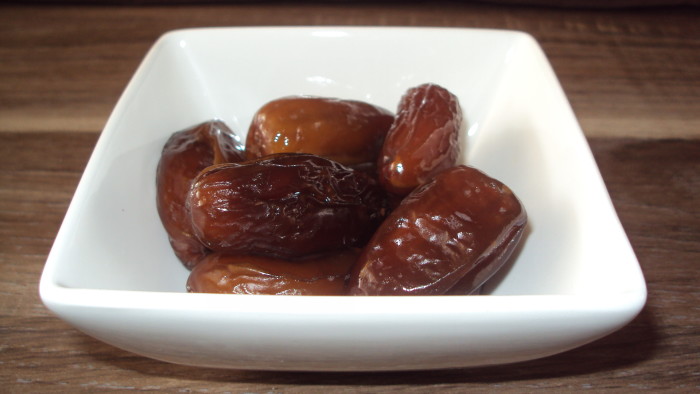
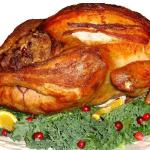

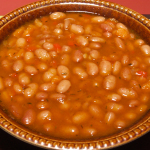
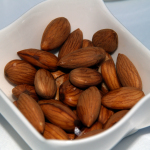
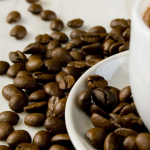
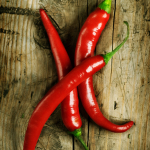
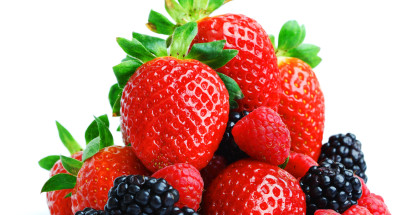


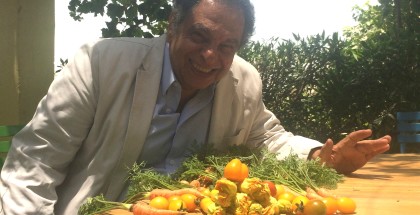
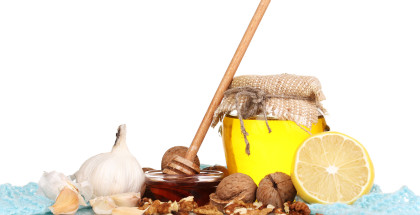

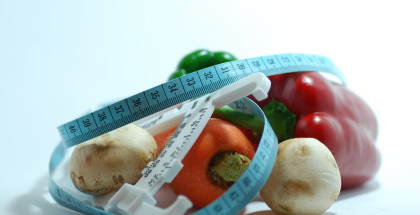
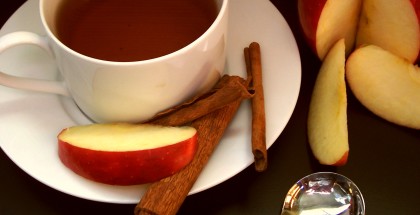


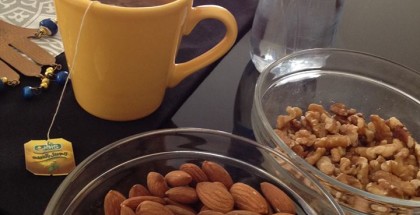














Comments